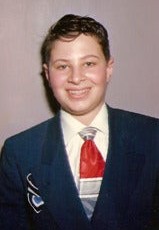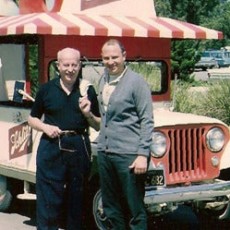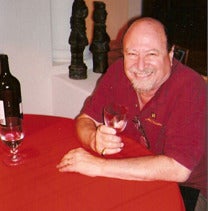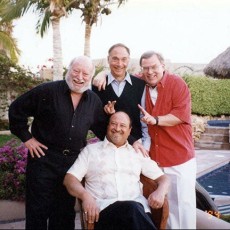David Berliner

David C. Berliner is Regents’ Professor Emeritus of Education at Arizona State University. He has taught at the Universities of Arizona and Massachusetts, at Teachers College and Stanford University, as well as universities abroad. Dr. Berliner is a member of the National Academy of Education and the International Academy of Education, a Fellow of the Center for Advanced Study in the Behavioral Sciences, and a past president of both the American Educational Research Association and the Division of Educational Psychology of the American Psychological Association. He has received numerous awards for his distinguished contributions. He is co-author (with B. J. Biddle) of the best seller The Manufactured Crisis, co-author (with Ursula Casanova) of Putting Research to Work, and co-author (with N. L. Gage) of the textbook Educational Psychology, now in its 6th edition. His newest book, Collateral Damage (with Sharon Nichols) is about the corruption of professional educators through high-stakes testing. Dr. Berliner has also authored more than 200 published articles, technical reports, and book chapters.
For more information, visit David Berliner’s Website. To learn more about David Berliner from his family and friends, visit his Reflections. To view photographs from David Berliner’s personal collection, visit his Photo Gallery.
Curriculum Vitae Suggested readingsVisit the video below to watch a short overview of the interview with David Berliner. Otherwise, see all six of the full interviews with David Berliner below.
Video Interviews with David Berliner:
Recalling a pervasive “small town feel” in the New York City neighborhood of his youth, Dr. David Berliner describes his supportive childhood with his parents and brother, admitting he once aspired to sail to Seville, Spain with the United States Merchant Marine. Berliner discovers his own interest in psychology through his first business venture-at only 18 years of age, Berliner and a friend purchased and operated a bar and grill. Berliner’s own son and daughter reflect on the profound personal and professional role played by the father who raised them partially alone. Watch this clip to learn more about Dr. Berliner’s life as a young boy in the Bronx and the stories his children remember best.
Reminiscing about cherished memories with lifelong friends, Dr. David Berliner recounts the details of hilarious escapades from his graduate studies at Stanford and his whirlwind romance with his wife, Dr. Ursula Casanova. Now married 27 years with 8 grandchildren, Berliner’s zest for life is apparent to family and friends by his favorite phrase-“Life is good!” See this clip to learn more about Berliner’s relationships with Dr. Lee Shulman, Dr. Gene Glass, and other educational researchers who have influenced who he has become today.
Citing his devotion to family and professional accomplishments too numerous to delineate, colleagues of Dr. David Berliner are confident his most significant contributions to educational research remain to be seen. Solidifying his reputation as a passionate, resourceful force in educational research, Berliner began his career by studying the critical use of instructional time in classrooms, citing student engagement as the most important element of efficacy. Berliner’s publication of several influential works including: Educational Psychology (with N. L. Gage), The Manufactured Crisis (with B. J. Biddle), and The Handbook of Educational Psychology(edited with R. L. Calfee) distinguish him as a world-renowned researcher. Tune in to find out more about how Dr. Berliner has touched the lives of educators around the world.
Influenced by family, friends, and his wife, Dr. Ursula Casanova, Dr. David Berliner acknowledges he would have been bored doing the same thing throughout his 20-year career in educational research and remains inspires by those who “devote their life to the public good.” Convinced he would have been a successful politician and professing an aversion to family counseling or law as alternate careers, Berliner would choose to dine with philosopher and educational reformer, John Dewey, whose works he admittedly avoided reading in graduate school. When watching this clip, be prepared to both laugh and reflect along with Dr. Berliner as he shares his favorite words and reveals his hopes for the afterlife!
Dr. David Berliner addresses young educational researchers, advising them to hang around “smart people,” and adopt ideas from their professors and others. Warning that data should inform rather than drive policy decisions, Berliner addresses the harm caused by a general maldistribution of wealth and teacher performance pay legislation. Find out more from Dr. Berliner on how to avoid political “language traps,” his beliefs about Campbell’s law, and how to boost overall student achievement by watching this clip.
In this clip, Dr. David Berliner responds to audience questions regarding the best way to have an impact as a young educational researcher, the future of NCLB, and alternative ways to measure student learning. Berliner also offers suggestions to teachers on how to change parental thinking regarding high-stakes testing. See what other skills Dr. Berliner believes students need to be successful in the 21st century.
Amrein-Beardsley, A. (2009, April 30). Inside the Academy video interviews with Dr. David Berliner [Video files]. Retrieved from /inside-the-academy/david-berliner

Kenny Bergman
Although they attended different elementary schools, Kenny Bergman and Dr. David Berliner became “bosom buddies” within weeks of beginning the 7th grade together in New York City. Maintaining a close friendship through college, the two young men decided to become business partners at only 18 years of age by purchasing and operating a bar and grill. Still astonished that they actually made a profit, David notes that his summer entrepreneurial experience resulted in his changing his major from business to psychology. Still laughing at the memories of that summer, David cautions that when sitting at a bar, you “realize how crazy people are in this world!”

BethAnn Berliner
Characterizing her father, Dr. David Berliner, as an “ideas guy,” BethAnn Berliner describes the profound impact this “truly great person and exceptional father” has had on her life. Possessing a zest for life, her father displays “hearty passions span[ning] food and wine, the performing arts, and travel, as well junk mystery novels and being with his extended family.” Both generous and outraged by social injustice, David has entertained his children, BethAnn and Brett, with his Donald Duck imitations, Paul Boomer jokes, and guitar solos. BethAnn recalls her father’s selfless dedication to parenthood, remembering late night play sessions after he worked the swing shift and missed classes in high school to help him collect research data. Both BethAnn and Brett Berliner credit their father with having had tremendous influence on their lives-“our passions, our humor, our values, our searching curiosity, our career paths, and our parenting all have bits and pieces of him.” In addition to being “a big name in the small world of those in the academy who ardently and passionately work to improve teaching and learning,” their father “knows a lot about a lot and believes that through education we all stand a chance to make it in this crazy world.”

Dr. Brett Berliner
Dr. Brett Berliner also cites his father’s memorable passion for life as influential throughout his childhood. Brett recalls watching silent movies in San Francisco and attending ice hockey games on Saturday mornings with his father, Dr. David Berliner. As a professional, Brett has been most “impressed by [his] father’s continual intellectual growth.” In fact, Brett insists that “it should not come as a surprise to anyone that [he and his sister] are both in education, the family business!” David’s “incessant reading and willingness to entertain new ideas and pursue new avenues of research and advocacy should be a model for all academics.” Brett believes his father to be “one of the greatest recent champions of public education,” possessing an “infectious maturity in his life, his work, his advocacy, and his love for his family.”
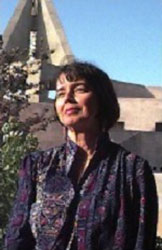
Dr. Ursula Casanova
When characterizing the “very full and rich relationship” Dr. Ursula Casanova shares with her husband and best friend, Dr. David Berliner, she explains that they can “get in a good argument as well as share a deep enjoyment of the arts, the challenges of travel, and the joy of sharing [their] lives with friends and, especially with [their] blended family of five children and eight grandchildren.” Citing overlapping academic interests, David and Ursula have collaborated as co-authors, editors, and researchers. Respectful of one another both personally and professionally, Ursula admires David’s “ability to move from the depths of journal-driven academia…to his current role as a public intellectual where he applies his well-honed skills to issues of high relevance to the field.” Affectionately comparing David to a coconut, Ursula insists that he has a “tough hard to break shell that hides a sweet and sentimental soul…[h]e’s extremely loyal to friends and family and absolutely intolerant of injustice.”
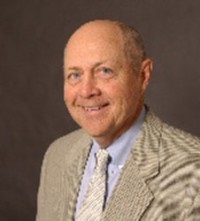
Dr. Gene Glass
Dr. Gene Glass and Dr. David Berliner, colleagues at Arizona State University beginning in 1987, were expected by some in the profession to engage in a turf war as two “Alpha Males.” Developing a cordial relationship instead, Gene offered to mentor David in his new position as Dean in 1997. The two world-renowned researchers now exchange drafts of papers, “ensuring an audience of at least one for everything [they] write.” Refusing to identify a most significant accomplishment, Gene insists that David’s best work may be yet to come, referring to Ben Franklin, Grandma Moses, Frank Lloyd Wright, and Picasso as highly productive in their later years. Praising David for his seemingly two contradictory qualities-passion and integrity, Gene believes that his colleague “cares deeply, both for the plight of those less fortunate than ourselves and for the canons of scholarship that are the only sure path to better life.”
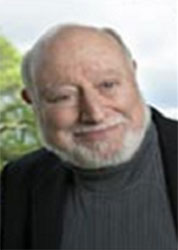
Dr. Lee Shulman
Sharing both a love of hockey and healthy professional rivalry, Dr. Lee Shulman and Dr. David Berliner have been, first and foremost, dear friends for more than 35 years. With colleagues Dr. Rich Shavelson and Dr. Gary Fenstermacher, Lee and David have modeled affectionate and respectful discourse as researchers, scholarly activists, and friends. As the scholars’ research interests have expanded and evolved, Lee recalls spending “a great deal of [their] time laughing.” Lee admits that he and David missed much of a National Academy of Education meeting in New York so that they could instead snack on pastrami at the Second Avenue Deli. Lee also assumes that David has not forgotten “Judy’s pewter wine glass” that he was given to replace the crystal one he broke when tapping it “just so” on his front tooth, hoping to make that lovely sound. “Inspired by David’s model of the committed scholar,” Lee is convinced that “David is persistently advocating for the quality and worth of the U.S. educational system and the teachers who inhabit it.” In fact, “more than any other scholar,” David has made “a difference in the world.”
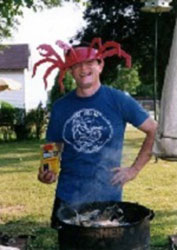
Dr. Frank Sobol
As a friend and colleague of more than 40 years, Dr. Frank Sobol first collaborated with Dr. David Berliner on a series of studies at Stanford University “based mainly on social learning theory to test alternative approaches to training pre-service teacher trainees” in the use of basic skills of instruction. Because the IBM 360-70 computer used to analyze the data required that the results be coded and key punched onto IBM data cards, Frank recalls that the data decks had to be run in the dead of night when the computer was readily available. Of course, the program often stopped due to data errors on the cards which Frank remembers correcting and resubmitting for processing. On one particularly late night, Frank admits that David became frustrated with a coding error, throwing cards all over the office floor. Professor McDonald later believed the university had been “attacked by vandals!” Particularly proud of David’s early studies through the Far West Lab (now WestED) and his consistent support of public education, Frank describes David’s “everyday life as marked by a deep commitment to provide love and support to his family and friends.” Further characterized as a “classroom teacher, researcher, data analyst, program administrator, [and] scholar,” David most impresses those who know him well, including Frank Sobol, with his integrity-“the honesty he applies to his work and what that work should mean in establishing, assessing, and revising educational policies and practices.”
